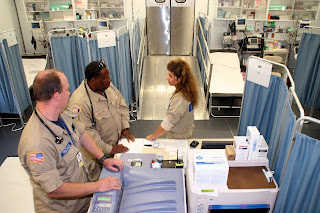This blog post is for the average joe who is trying to figure out how internal medicine residency effects our daily life (or are a little curious after a House marathon). Physicians who begin their internal medicine residency program Baltimore are expected to be a specialist when it comes to the prevention, diagnosis, and treatment of adult diseases.
So what exactly is an internal medicine residency, Baltimore? Well, an internal medicine student (also known as an internist) is the person your doctor goes to when he can't figure out an answer to a diagnosis. An internist has at least three years of their medical training and schooling dedicated to learning how to prevent, diagnose, and treat adult diseases. You may spot an internist within your hospital as the physician who is frantically following a primary care doctor.
More About Internal Medicine Residency Program Baltimore
Most physicians who join an internal medicine residency program Baltimore enter into the practice as a follow-up from completing their basic internal medicine training and would like to pursue a career in internal medicine. Internists are equipped to handle an array of adult diseases, are recognized as specialists in diagnosis, and are not limited to one type of medical problem or organ system. During the program, internists practice on caring for patients in the hospital setting.
Are you still trying to understand exactly what students in an internal medicine residency Baltimore do? Think of them as your primary doctor's second-hand man. They help keep the primary care physician organized while ensuring any patient is having a comfortable visit. Many internists who want to become a primary care physician generally takes the opportunity of being an internal medicine residency Baltimore to create relationships with patients.
What separates an internist from a family doctor? Family doctors are trained to not only diagnose adults, but also have practice in pediatrics, obstetrics, and surgery. An residency program's main curriculum will be focused on general adult symptoms and diagnosis. To learn more about internal medicine and the doctors that dedicate their lives to internal medicine, visit: http://www.medstarhealth.org/.

No comments:
Post a Comment